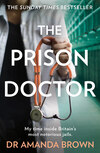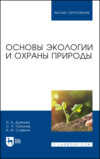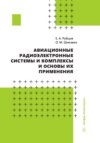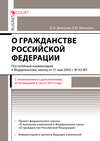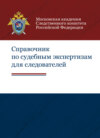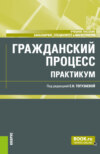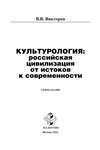Loe raamatut: «The Prison Doctor»
THE PRISON DOCTOR
DR AMANDA BROWN

ONE PLACE. MANY STORIES
Copyright

An imprint of HarperCollins Publishers Ltd
1 London Bridge Street
London SE1 9GF
First published in Great Britain by HQ in 2019
Copyright © Dr. Amanda Brown and Ruth Kelly 2019
Dr Amanda Brown and Ruth Kelly asserts the moral right to be identified as the author of this work.
A catalogue record for this book is available from the British Library.
This novel is entirely a work of fiction. The names, characters and incidents portrayed in it are the work of the author’s imagination. Any resemblance to actual persons, living or dead, events or localities is entirely coincidental.
All rights reserved under International and Pan-American Copyright Conventions. By payment of the required fees, you have been granted the non-exclusive, non-transferable right to access and read the text of this e-book on-screen. No part of this text may be reproduced, transmitted, downloaded, decompiled, reverse engineered, or stored in or introduced into any information storage and retrieval system, in any form or by any means, whether electronic or mechanical, now known or hereinafter invented, without the express written permission of HarperCollins.
Ebook Edition © May 2019 ISBN: 9780008311452
Version: 2020-02-11
‘The mind is its own place and in itself can make a Heaven of Hell, a Hell of Heaven.’
– JOHN MILTON, Paradise Lost
Contents
Cover
Title Page
Copyright
Epigraph
Prologue
PART ONE
Where It All Began (2004–2009)
Chapter One
Chapter Two
Chapter Three
Chapter Four
Chapter Five
Chapter Six
PART TWO
The Scrubs (2009–2016)
Chapter Seven
Chapter Eight
Chapter Nine
Chapter Ten
Chapter Eleven
Chapter Twelve
Chapter Thirteen
Chapter Fourteen
Chapter Fifteen
Chapter Sixteen
Chapter Seventeen
Chapter Eighteen
Chapter Nineteen
Chapter Twenty
Chapter Twenty-One
PART THREE
HMP Bronzefield (2016–present)
Chapter Twenty-Two
Chapter Twenty-Three
Chapter Twenty-Four
Chapter Twenty-Five
Chapter Twenty-Six
Acknowledgements
About the Author
About the Publisher
Prologue
HMP Bronzefield
I arrived to shouting and screaming. Prison officers were sprinting across the corridor and up the metal stairs.
‘What’s happening?’ I shouted, thinking a fight must have broken out.
I’ve seen and heard a lot during my fifteen years as a prison doctor, but the reply shocked me.
‘Someone’s having a baby!’ one of the officers yelled, repeating the news into his radio. He called for back-up, an ambulance, nurses, for all medical staff to come to House Block One.
‘Oh bloody hell!’
I followed the stampede. We sounded like a small army trampling up the metal stairs.
The deep stench of overcooked vegetables from lunch lingered in the air, green and ripe, sweet and rotten, mixed with sweat and cheap soap.
The prisoners heard us coming, thumping their fists on their cell doors. Metal thunder, filling the air.
Half a dozen officers were already crowded outside the entrance to the tiny cell at the end.
‘Coming through!’ I said, squeezing past them.
A shaft of light poured through the small barred window. Hiding in the shadows of the corner was a tiny young woman, standing and shaking. Her nightie was soaked in blood from the waist down. The walls were splattered too; violent red sprays, like protest graffiti.
She looked completely shell-shocked. In that moment, she didn’t know where or who she was. Her wiry black hair was drenched in sweat and glued across her face.
But where was the baby?
I tried to appear calm, stepping closer, trying to reassure her.
‘Hi, sweetheart, you’re going to be okay.’
Who knew if that were true? I suspected the prisoner was a heroin addict currently on methadone. The majority of prisoners on House Block One had a history of substance misuse.
The banging of the doors grew louder. Shouting and swearing, the air full of heat and sound and pressure. When the prison was like that it felt as if a spark could blow the place sky high.
The woman started screaming.
‘Get it out of me! Get it out of me!’
She must have meant her placenta because there, partially hidden by the bed, lying in a pool of blood on the cold prison floor, was a tiny baby girl.
I looked around, trying to see something I could use to wrap her up. The umbilical cord was torn, presumably ripped apart by her mother. The baby was so small I suspected she was a good few weeks premature. But was she alive? Was this poor, poor girl ali—
To my overwhelming relief she started to cry.
‘Has anyone got any clean towels?’ I asked.
‘Here you go, Doc.’ Becky, the prison officer, handed me the only clean thing she had to hand – a blue bed sheet.
I scooped her up into my arms, wrapped the prison sheets around her and held her close, desperately trying to warm up her fragile body. What a way to come into the world. She nestled into my chest and her crying settled a little.
I looked along the landing, desperately hoping for a sign of the ambulance. Both mother and baby needed to be transferred to hospital as soon as possible. The mother had clearly lost a lot of blood and as the placenta had not yet been delivered she was at risk of a postpartum haemorrhage, a major cause of maternal mortality.
While we waited, I checked for active bleeding. Thankfully there was no sign. But however relieved I felt, it was no comfort to her.
‘Get it out of me! Get it out of me!’ she continued to scream, over and over again, showing no interest at all in her baby. I worried she had not wanted the child, and wondered if she had been raped. I met so many women who had been the victims of gruesome sexual assaults.
The fear for the baby was that she may well have been subjected to drugs during the pregnancy. Any addictive substance that the mother may have used could also cause the foetus to become addicted. At birth the baby’s dependence continues, but as the drug is no longer available symptoms of withdrawal can occur. This is known as neonatal abstinence syndrome. Symptoms can begin within twenty-four to forty-eight hours and require very careful management.
‘Make room for the paramedics!’ someone shouted, and relief washed over me as I heard the thumping of boots.
They came into the cell and one of the officers handed me a white towel for the baby. It might seem trivial in such a horrific situation, but I found a great deal of comfort in knowing that beautiful creation – with a mop of dark hair plastered to her head, a mirror of her mother – would be wrapped in a soft, warm towel rather than prison sheets.
The paramedics placed a blanket around the mother’s shoulders and gently guided her into a wheelchair. She was still screaming ‘Get it out of me!’ as they started wheeling her away. She stared briefly at her baby in disbelief and disappeared from view.
Two prison officers would be needed to escort her to hospital, with one officer cuffed to the prisoner, just in case she tried to make a run for it. I didn’t think I’d ever get over the sight of that, however much I knew it was necessary. I’d been taught that no prisoner is ever too sick to make a dash for freedom. The story of a new mum who jumped from the first floor window of a hospital maternity ward still does the rounds.
One of the paramedics turned to me, opening her arms: it was time to hand over the baby.
I gave the little girl one last cuddle, gently stroking her cheek with my forefinger. She wrapped her whole hand around my little finger and I said a little prayer in my head, hoping for the best.
If she was allowed to stay with her mum they would be located on the Mother and Baby Unit, on return from hospital, for a maximum of eighteen months. If the mother’s sentence was longer, the child would then be taken into care. However, if it was decided the mother wasn’t fit to care for her baby they would be separated very soon after birth.
Being a mother myself, I can’t imagine what it must feel like to have your baby taken from you. To spend the days and nights in prison, imagining how she is growing up, what she looks like, who is taking care of her when she cries.
What would happen to the baby? I could look into it, of course. I could ask. I could follow the case through. But could I bear to know?
My contribution to the prisoners’ lives is limited. I can’t rewrite history for them, but I can take the edge off their suffering. I can help wean them off their addictions. I can be a listening ear.
My job is not to judge them but to care for them, and helping people, regardless of who they are and what they have done, is what I live for.
Everyone filed out and I was left alone, staring at the stained walls, the bloodied footprints. The claustrophobic grimness of the cell.
‘You all right, Doc?’ Becky asked.
‘Yes, mate,’ I sighed.
I followed her back downstairs and threw on my armour. It wasn’t just the prisoners who needed to be strong to survive being in there. If I took everything I saw to heart, I’d be a mess.
I had a job to do – other people were waiting for me.
PART ONE
Where It All Began
2004–2009
Chapter One
HMP Bronzefield
2019
‘Wait up, Doc!’ I spotted Gary, a prison officer, running towards me.
Many of the gates in the prison are alarmed, and staff have about thirty seconds to lock them before the sirens start blaring. I held the gate open. He weaved himself through in the nick of time.
I pulled the heavy gate shut, the resounding clang ringing through our ears. I locked it with one of the five keys chained to my black leather prison-issue belt. I knew which key I needed without looking; I’ve locked and unlocked those gates so many times.
We were in the central atrium at HMP Bronzefield. The largest female prison in Europe. Home to seventeen out of the twenty most dangerous women in the UK. Some high-profile murderers have been locked up here. Serial killer Joanna Dennehy, Becky Watts’s killer Shauna Hoare, Mairead Philpott who helped start a fire that killed six of her children. Then there was Rosemary West, of course, also once a prisoner there – or ‘resident’ as they are referred to in Bronzefield.
The atrium roof is surrounded by windows; daylight, bright and beautiful, 60 feet above your head. In the middle of the room, five very tall synthetic trees reach towards the light. Even the plastic trees are trying to get out of there. It’s bright and airy, a far cry from the tiny cells where the prisoners spend so much of their time.
‘You’re looking tanned!’ I told him.
Gary grinned at the memory of his week of freedom.
‘Seven days and six nights in Spain. All inclusive, the missus loved it. I didn’t want to come back!’
But I knew that wouldn’t be quite true. The shifts can be long and exhausting, physically and emotionally, but for some reason we do still want to turn up for work. And it’s not just because it pays the bills.
It gets into your bones. The drama, the camaraderie, the highs and lows. I can honestly say I would rather spend a Friday evening working in Reception – meeting prisoners arriving from court, a diverse range of people, from different backgrounds, different cultures – than be out socialising.
But then, I’m not very good at small talk any more.
After hearing the sorts of stories I have over the years, I find it hard to engage in social chit-chat. I find it hard to talk about things that are trivial. You’d think I’d relish the break, the relief from the seriousness, but I don’t think of it like that. Every day I’m part of something important. I think of it as an honour, a privilege, that people, often from completely different worlds from mine, will choose to confide in me and relate to me.
I don’t know if it was his break away from the place, but Gary was in a philosophical mood. As we walked towards the gates which lead on to the Healthcare unit, our keys jangling with every footstep, he turned to me and said, ‘You know what, Doc, I’ve been thinking.’
‘Uh oh!’ I teased him.
He flashed me a smile and then suddenly looked serious.
‘I’ve been thinking about life. This place, and why people end up here.’
I was intrigued. ‘Go on.’
Gary had been at HMP Bronzefield for fourteen years and was one of the good guys. He liked the challenge of dealing with the emotional needs of prisoners; he wanted to see them reformed.
He frowned, thinking for a moment. ‘I think most prisoners have had a Sliding Doors moment,’ he said. ‘You know, that point in life where your life could really go either of two ways.’
I stood back while he opened the next set of gates. Like me, his fingers found the right key without ever having to look.
We made our way into the medical suite, a selection of rooms off a narrow corridor. I waved hello to Soheila in the pharmacy.
‘It could happen to anyone, couldn’t it?’ he continued. ‘A moment, a random moment when your whole life hangs in the balance. Like …’ He tried to think of an example.
‘You’re having a drink in a pub, a fight breaks out, you hit someone, that person falls back and smacks their head. They die. The next thing you know, you’re banged up inside for manslaughter.
‘Your life can change in the blink of an eye. You know what I mean, Doc?’
Of course I knew. After all, it was just such a moment that had led to me being there.
Buckinghamshire
2004
The warmth of the central heating blasted into my face as I walked through the entrance doors of my GP practice.
I was greeted with a smile from Kirsty on reception.
‘Morning, Amanda!’
I had no idea how she managed to be so cheerful, so early in the day.
As usual I felt daunted at the thought of how many patients I was likely to be seeing that day, but I loved my job as a GP – however exhausting it was.
I tugged my gloves off with my teeth, and picked up a pile of letters and notes Kirsty had put aside for me. So much paperwork.
‘How’s today looking?’ I asked.
‘Fully booked. Biscuit?’ Kirsty waved the packet under my nose.
I shook my head. ‘Don’t forget the lunchtime meeting.’
‘All scheduled, she said, tapping at the calendar on her computer screen with her biscuit.
My stomach somersaulted thinking of the meeting, and the changes it might bring to my cosy practice.
In less than a month, on 1 April 2004, the new GP contract would be introduced, in which the whole pay structure for general practice would change. The basic pay would be reduced, but bonus payments could be earned if certain questions were asked and checks were done during the consultation.
I think it was intended to make GPs perform better, but I knew I’d struggle with it – gathering such information when perhaps a patient was deeply depressed or had recently been diagnosed with cancer, might feel inappropriate.
After twenty years my patients knew me too well. They would be able to see through why I was asking the questions, and I knew I couldn’t do it just for the sake of it.
I reflected on how things had changed in the two decades since I’d started the surgery from scratch. The practice was within easy reach of London, and I’d managed to build my list up to about four thousand patients.
I’d moved with the times, always adapting to the changes within the health system and my surgery, but this latest scheme was threatening my core beliefs and principles concerning patient care. I was deeply concerned that I wouldn’t be able to change my consultation style and gather the information required to earn the bonus payments. I also had a terrible inkling that my practice partners would demand I do so.
At 1 p.m. I steeled myself for what was to come, grabbed my note book and pen, and headed along the corridor to the meeting room.
Pretty pictures of landscapes, seascapes and flowers lined my way. I’d worked hard over the years to remove the sterile feel a new-build can have, to create a welcoming environment where people could feel relaxed. Small touches like that mattered to me.
I was the first to arrive.
I sat down to wait for the practice manager and my two partners, who now co-owned a share of the surgery. They were both excellent doctors, young and ambitious, and as I had never been particularly good at managing money or the business side of running the practice, I was more than happy to let them take charge.
The door swung open. Rohit, one of my GP partners, walked in, rubbing his hands. The other two followed close behind. They took their seats.
The tension was palpable. I sat there, legs crossed, anxiety building. My heart was pounding and I felt sick.
Rohit looked directly at me. ‘So, how are you feeling about the changes, Amanda?’ he asked.
We both had strong personalities and didn’t always see eye to eye.
I leant forward, crossing my arms on the table. My shirt tightened across my back, absurdly making me feel even more trapped.
Rohit leant back, giving me a tight little smile.
‘Well …’ I started, and didn’t stop until I’d expressed how unhappy I felt about the new scheme. I was open and honest with them about what I was – and, most importantly, wasn’t – prepared to do.
They glanced sideways at each other.
We were all silent for a while.
Rohit cleared his throat. ‘Well, if you don’t pull your weight financially, we will resent you,’ he said in an icy tone.
I felt like the wind had been punched out of my lungs.
Resent me? I was the one who had built up the practice!
I felt furious. Unappreciated. But most of all, hurt.
Resent me? To be made to feel so worthless, to be expected to live with their resentment, or toe the line to make more money …
I couldn’t work like this. I wouldn’t work like this.
It was my Sliding Doors moment. In the blink of an eye, my life took an unexpected turn.
‘Well, I’m leaving then,’ I said.
All three stared at me in disbelief as I slowly peeled myself out of my chair and walked out of the door.
I must have looked white as a ghost, as Kirsty on reception asked if I was all right.
‘No, I’m leaving.’ I choked back tears.
I heard her gasp, but whatever words followed were lost as I walked through the front doors, out into the cold. The wintery air hit my lungs, making it even harder to breathe.
What was I going to do now? I was forty-nine and turning my back on my career, my income, on everything.
I spun around and stared at the surgery I had created from nothing all those years ago. With it’s pretty rhododendron hedge that I’d planted to give it a more welcoming, community feel. The building my property developer husband, David, had built for me. I thought about the thousands of patients on my list, many of whom had become like friends. I’d watched their children grow up, I’d listened to them when they worried, seen some make huge life changes. I’d held the hands of heartbroken elderly patients as they cried with loneliness. I hadn’t been just a doctor: at times I felt as if I’d been a counsellor, a social worker, a vicar, a friend, all rolled into one. I had loved my life as a village GP, and over the years I had grown to know and love so many of the people I cared for that I used to joke I could write a book on many of them. Apart from my family, my surgery had been the most important thing in my life.
And just like that, it was all over.
*
I couldn’t sleep.
I’d been staring at the same spot on the ceiling for hours. David held my hand while I lay there, chewing over my decision. My husband, my boys – Rob and Charlie – they were everything to me. Doing something that lurched us into financial risk wasn’t something that sat well.
David had reassured me it would be okay. Luckily he had a good job and would be able to take care of us. I wasn’t used to someone taking care of me though. Ever since I was a little girl I’d wanted to stand on my own two feet. I loved working, it gave me a purpose, I didn’t want to give that up. I also loved helping people, that’s why I became a doctor. My thoughts went back to my patients. I felt a huge pang of guilt for walking away from them.
Guilt, fear, sadness, anger – a cocktail of emotions were turning and churning around in my mind, growing louder and more intrusive in the quiet of the night, until I finally snapped.
I peeled back the duvet, tiptoed across the room and slipped into my thick fleece dressing gown that was hanging from the hook on the back of the door. The cold fabric, chilled by the winter air, sent a shiver down my spine.
David stirred. ‘Are you okay?’
‘I’m fine, go back to sleep.’
Downstairs, I made myself a cup of warmed milk. I took a seat at our chunky wooden table and stared through the kitchen windows into the night. The infinity of black felt as dark as my future.
I didn’t have a formal agreement with my partners about my notice period. We had agreed I would leave the surgery in just three weeks’ time.
Leave my surgery – those words stoked my anger again. I didn’t feel it was right! GPs shouldn’t be getting paid bonuses for doing their jobs!
I took another furious slurp from my mug.
My partners had also been keen that I keep appointment times to ten minutes, and only address one problem in that time. But often my patients had been waiting weeks to see me, and if they came in with more than one problem I didn’t have the heart to tell them they would have to book another appointment, that they would have to wait another three weeks to tell me the rest of what was bothering them. More importantly, one ailment could be related to another; it was important to hear the full story.
I felt more indignant than ever.
I stared through the kitchen window again. But this time I looked past the darkness to see my own reflection.
My hair, short as it was, had managed to find entirely absurd, startled shapes. I flattened it down the best I could with my hand, and swept my fringe from my eyes.
I looked utterly exhausted but I knew I wouldn’t be able to get back to sleep until I had got everything off my chest.
I made my way to the study.
I didn’t need to switch the light on, the moon was beaming through the large sash windows, illuminating the cluttered room.
The shelves were so packed with medical journals they were warping under the weight, sinking in the middle like a hammock. The desk which overlooked the garden wasn’t much better. Either side of the computer were mountains of paperwork. The weight of a life, mountains and mountains of paper, and I was throwing it all away.
Beside the keyboard were silver-framed pictures of my boys in their school uniforms. They sported proud grins. Were they proud of me?
Twenty years. Twenty years of looking after people and it was all over.
I switched on the computer and reached down to turn on the electric heater by my feet. It rattled and hummed, the noise strangely comforting.
I started writing. Pouring my heart out at half past three in the morning, tipping all of my emotions onto the blank page.
It was everything I wished I had expressed in the meeting earlier, every argument against the new contract and their new policies. Explaining exactly how it had forced me into quitting the job I loved.
I wrote for nearly an hour and then sunk back into the padded leather swivel chair, letting out a huge sigh of relief.
What I should have done was pressed ‘Save’, slipped back under my duvet and snuggled into David, now that I had got everything off my chest.
Instead, I pressed ‘Send’.
Tasuta katkend on lõppenud.
